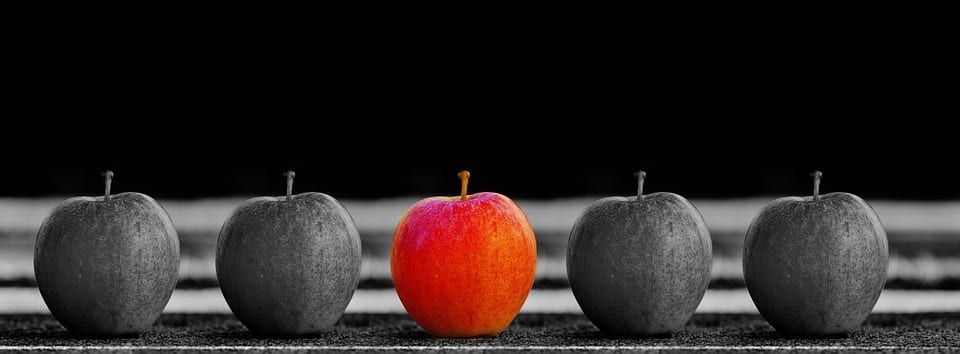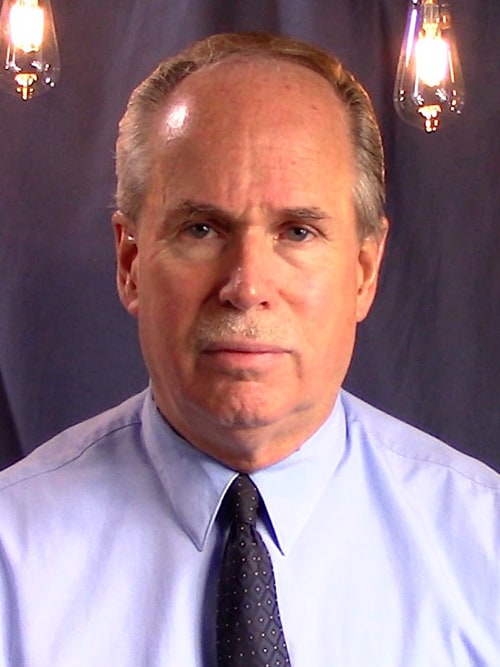You ever notice that we seem to be on this relentless quest where we’re scrutinizing ourselves raw in order to ascertain what we think our flaws, our foibles, our weaknesses and our warts are? We put ourselves under some sort of minutely dissecting microscope with skewed lenses in order to ferret out all of our little imperfections. We incessantly crawl around on all fours with our eyes mere centimeters from the surface of our lives, scratching and picking and sorting so that everything that we are is entirely clean, socially acceptable, without cultural blemish and perfectly in step with whatever it is that we’ve chosen to determine our steps. With our noses to the ground on an outrageously mad hunt for any and all imperfections we whittle away our lives being what we think we’re supposed to be, rather than being who we were created and designed to be. Ever notice?
What Sets the Standard For Our Search?
There’s certainly a standard in our culture. There are expectations that clearly outline who and what we’re supposed to be. Those expectations are based on culturally acceptable norms that create “cookie-cutter” stereotypes. Stereotypes perpetuate the cultural norms by encasing them in some kind of frozen blocks so that they automatically perpetuate themselves in any and all places. An unknown author wrote, “Stereotypes are devices for saving a biased person the trouble of learning.” The worse bias that we can have is a bias about ourselves as it saves us the trouble of learning that we’re a whole lot more than we thought ourselves to be. A bias also saves an incessantly busy culture the time of really looking deeply into itself in order to ascertain the wealth within it. And so we press and contort ourselves in order to fit into whatever box the cultural stereotype has designed.
Society too often creates a “one size fits all” kind of mentality. There’s an assumption that there are slots to fill and we must fill the slots. Find your place, get in it and stay there. Figure out whatever the cadence is and march accordingly. Find your box, move in, decorate it, set up shop and be happy. What color is your parachute, what’s your social standing, what’s your breeding and background, what’s your disposition, what’s your passion, what’s your career, and how’s your personality wired? Once you’ve figured all that out, set it aside, take a number, get in line and realize you’re just one of the crowd.
In many cases, the standards of society are good, meaningful and productive. There are a large number of societal standards that are worthy of our emulation. However, society too often sets standards for society, not the individual. Society often wants it clean, uncomplicated, tight and easy, so just find your place in line and get it in. Because that’s often the mindset, cultural expectations are designed to fulfill and achieve that mindset. In succumbing to it, we lose our individuality and sacrifice the resources of that individuality.
Discovering Our Uniqueness
The balance that few people seem to achieve is one where we purposefully cultivate the core of who we are, while working to slough off the biasing goo of the culture. It’s not about a blatant disregard for cultural norms or expectations at all. Rather, it’s being committed to our uniqueness as a person rather than being rigorously force-fit into whatever the culture wants to force-fit us into. It’s realizing that when we maximize who we are, we are then of maximum benefit to society and the world around us. Yet, before we can be authentically “us” we must determine who or what that “us” is. In more effectively making that determination, there are a few thoughts you might want to start with:
Understanding Our Limitations
First, healthy self-evaluation takes place when we’re frankly honest about our limitations. Sometimes our limits should be exactly that . . . our limits. Wisdom often involves knowing when to stop, when far enough is far enough, and when it’s legitimately time to invest our energies elsewhere. Limitations exist for reasons. It’s not about giving up or surrendering or being weak-willed or passively apathetic. It has nothing to do with being sheepish, shy, insecure or outright scared. Rather, limitations let us know when something is completed, that further work on our part is unnecessary, that anything beyond this point is squandered energy, and that we need to direct our resources toward the next place in our lives.
Developing Realistic Expectations
Second, effective self-evaluation takes place when we’re realistic about our expectations. Our expectations can be too high, too low, entirely misdirected, or so vague that we couldn’t even tell someone what they were. Expectations define what we expect of ourselves and they typically say volumes about how we feel about ourselves. Lack of expectations either suggests a sloth-like laziness, a blatant ignorance about life, a disregard for the gift of life and the shot we have at it, or a glaring lack of self-confidence. Realistic expectations cannot be the stuff of wildly irresponsible ideas or the product of fear-based barriers. They should reflect the genuine capabilities of our uniqueness which will create the most balanced environment within which our uniqueness can flourish.
Self-Evaluation that’s Outside of Our Vision
Third, healthy self-evaluation occurs when we view ourselves through the template of a belief system that calls us out, up and beyond our own humanity to believe in our ability to embrace something infinitely higher and terribly more profound than the lax designs of a mediocre culture. It’s believing that the vision of who we can be is dramatically limited by our vision of who we can be. It’s believing that something greater than us has something a whole lot greater in mind for us. If we’re not careful, we forfeit vision for confining rubrics because they seem more reasonable and a whole lot more doable. We then embrace a pathetic and unnecessary compromise that spreads the infesting germ of mediocrity throughout our lives. We can kill the germ of mediocrity by looking back at ourselves through eyes of something a whole lot bigger than us that sees us as big as we really are.
We Are More
Few of us do any kind of self-evaluation with anything remotely resembling the kind of depth that unleashes us. We are diminished by our own assessment of ourselves; an assessment that wholly abandons our uniqueness. We rarely embrace a framework that even comes close to allowing us to see the immensity of who we are; that based on that understanding beckons us to be humbled in the stunning recognition of who we are, and that challenges us to draw upon the resources around us to build upon the immense resources within us. We are more than we presume ourselves to be; much, much more.

 Craig Lounsbrough
M. Div., LPC
Craig Lounsbrough
M. Div., LPC